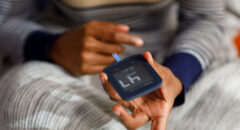
While it can happen at any time, dehydration – not having enough fluid in your body – occurs more often when temperatures increase during the summer months. As much of the nation gets ready to enter its hottest time of the year, the experts at NurseWise, a national multilingual nurse triage and health education provider, are pleased to share information about dehydration and who’s most at risk.
“Most people don’t realize they are dehydrated until it’s too late,” says Kim Tuck, RN, President and Chief Executive Officer of NurseWise. “Both our bodies and minds need fluids to properly function. When fluid levels become too low, some of the first symptoms you may experience are cramps, dizziness, headache, vomiting or disorientation. To stay hydrated, drink plenty of liquids every day, particularly if it’s hot outside.”
Symptoms of Dehydration in Adults
The signs and symptoms of dehydration range from minor to severe and include:
> Increased thirst
> Dry mouth and swollen tongue
> Weakness
> Dizziness
> Palpitations (feeling that the heart is jumping or pounding)
> Confusion
> Sluggishness
> Fainting
> Inability to sweat
> Decreased urine output
> Urine color may indicate dehydration.
If your urine is concentrated and deeply yellow or amber, you may be dehydrated.
The following groups are at an increased risk for dehydration. If this includes you or someone you care for, fill up on fluids for optimal health!
1. Children
Little ones are the most susceptible to dehydration. The smaller you are, the more quickly you sweat out water and important minerals like electrolytes.
Infants and children also are more prone to diarrhea and vomiting, which can cause the body to lose liquids more quickly.
Some symptoms to look for are a child who seems less active than normal, hasn’t had a wet diaper for three hours or more, or doesn’t have tears when crying.
2. Aged adults
The older we get, the more difficult it is for our bodies to store fluids and adapt to changes in temperature.
We also tend to take more medications and eat less as we age, which increases the risk of
dehydration.
Keep water handy and drink before you are thirsty to keep symptoms at bay.
RELATED: 8 Tips For Handling Diabetes In The Summer Heat
3. Individuals with chronic conditions or illness
Those with chronic conditions such as uncontrolled diabetes, kidney disease and heart failure may be at risk of dehydration.
Even the common cold, a fever or the flu can cause fluid levels to go too low.
Make sure you’re drinking a surplus of water if you are taking medication of any kind or aren’t feeling well.
4. Climbers and hikers
As your body tries to adjust to the higher elevation, you urinate more and breathe heavier, increasing your risk of dehydration. The higher you go, the more dehydrated you can become.
To make sure you aren’t at risk, bring double the amount of water you think you’ll need.
5. Outside exercisers or workers
Don’t let dehydration ruin your day in the sun! If you are in the heat for extended periods of time, make sure you drink more fluids than the amount you sweat out.
If you don’t, you have a greater chance of suffering heat exhaustion, heat stroke, seizures, coma, and even death. Munch on ice cubes or swig H2O or a sports drink with electrolytes every 15 minutes to keep yourself feeling in top shape.
Don't let dehydration ruin your summer plans. As you plan for a summer of fun, keep these tips in mind.








